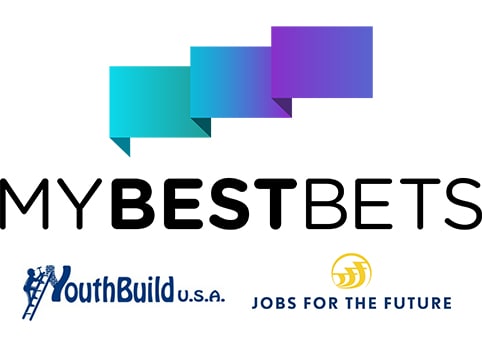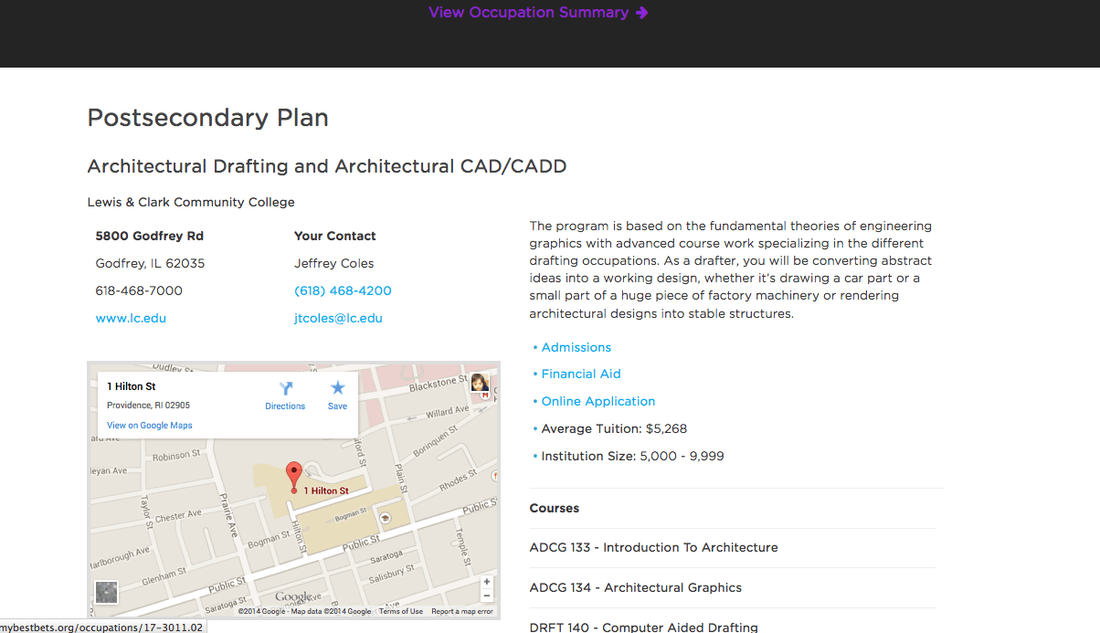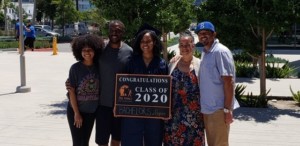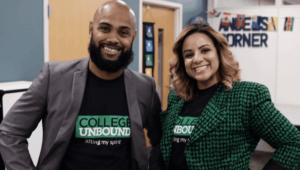Betting on a Better Counseling Approach for College and Careers

Scott Emerick & Clare Bertrand
Choosing a college, selecting a course of study or training program, and launching a career path are not easy choices for anyone and the stakes for these decisions are
highest for low-income students.
There are currently 6.7 million 16 to 24-year-olds in America who are not currently in school or working. We are part of a growing movement calling these young people Opportunity Youth. The great news is that despite their disconnection from education and employment, these young people have considerable skills, talent, and motivation. The bad news is that many of the schools that pushed out these young people and many of the schools, and career development programs that reconnect these young people, lack the resources and support systems to help turn students’ interests, aspirations, and talents into degrees, credentials, and careers.
Young people who deserve the most support usually receive the least guidance in answering many of the most important questions of their lives: Where can I gain the knowledge and skills I need to get a good job? What career path should I choose? What is my best bet for securing my future?
What Students Deserve
Low-income students deserve new solutions that empower them as informed consumers of postsecondary education and training options. They want to see real connections between postsecondary education and the careers that interest them and would best support their families.
Students and graduates say that they want real-time information about career and postsecondary paths that is easy to understand and fun to use. They also want real connections with caring people who know them and can help them select, enroll in, and persist in the pathways that represent a best bet for the future they envision for themselves and their families.
Finally, many low-income students understand that they might lack the social capital around career and college pathways enjoyed by their higher-income peers, and they want support in building it. Students need opportunities to step away from the screen and engage in real-world experiences that help them develop the relationships and social capital they need to shape their education and career paths.
What Counselors Need
For counselors and support staff working with low-income student with increasingly heavy caseloads, time represents a precious resource. From our conversations with practitioners across the field, it is clear that they are interested in using local labor market data more proactively, understanding shorter term credentials better, connecting with students more deeply, and providing enrichment experiences with employers, postsecondary and community partners more consistently.
These practitioners need tools that streamline their work. They need to see, at a glance, where students stand in their planning process. They want tools to drive student-led education and career exploration. They want to customize tools with their own experiences and local resources. Finally, they recognize that better ways to communicate and motivate students, through text “nudges” for example, are increasingly essential.
An Emerging Response
Many organizations are thinking deeply about the transition needs of low-income learners. We see tremendous potential for EdTech to help Opportunity Youth and other low-income learners make more informed decisions about postsecondary and career pathways. New technology can provide better, more personalized data to students.
The most promising approaches also address the reality that even the strongest data and best information should be verified and must be supported by personal connections and professional networks. Caring professionals can help confirm that postsecondary education and training options offer real returns on a young person’s investment of time, money, and resources. Many of the best tools in this space can be used in coordination by talented advisors and support staff.
We are thrilled to see other emerging leaders in this space. Here are a few worth mentioning:
- College Greenlight: developed specifically for first generation and underrepresented students with the goal of connecting them to “caring colleges,” scholarships, and counselors and mentors.
- iMentor: builds mentoring relationships that empower students from low-income communities to not only graduate from high school, but also develop college aspirations, navigate the college application process and build critical skills that lead to college success.
- Find Your Calling: new offering from EMSI, though not specifically designed for low-income students, helps young people use real-time labor market information as a resource for postsecondary exploration.
National campaigns and their online tools increasingly focus on the postsecondary and career success of lower-income students. Know How 2 Go insures that students have the “college knowledge” they need to succeed. And Grads of Life helps employers understand the value of the talent and leadership that these young leaders bring to the workforce.
These platforms and campaigns represent an emerging movement toward technology-enabled counseling approaches that present more user-friendly information and content in a wider variety of ways (image, text, and audio). Innovative approaches like these will engage students more deeply and provide them with a better sense of jobs and careers than text-heavy descriptions used previously.
Jobs for the Future and YouthBuild USA recently partnered with the Noyce Family Foundation to create MyBestBets – a new solution for low-income young people and their counselors. The web and mobile platform is designed specifically to help low-income students organize and manage their postsecondary and career through an explicit set of exploration, decision, and enrollment tasks. By integrating local labor market data, postsecondary information, and employer preferences, MyBestBets helps students find postsecondary education or certificate programs that lead to promising careers. This blended counseling approach combines technology with off-screen networking activities, adult support, and skills essential in helping young people find their path and stick with it. MyBestBets is currently being piloted in Los Angeles and New York City.

The field still needs more effective tools that empower students to access a much broader range of postsecondary pathways that respond to a wider variety of life circumstances facing low-income students. We need more tools that focus innovation more directly on users who are not starting their postsecondary pathway at four-year colleges.
Many low-income learners currently lack access to the economic mainstream at a time when 14 million US jobs requiring postsecondary degrees will go unfilled in the next 10 years. More than ever before, closing this opportunity divide requires innovative solutions empowering young adults to be informed consumers making choices that connect education, training, and meaningful career pathways.

Clare Bertrand is a Senior Project Manager at JFF working with the Back on Track Through College team. Follow Clare on Twitter at @cbertrand88.

Scott Emerick serves as Vice President of Education for YouthBuild USA. Follow Scott on Twitter at @Scott_Emerick.





0 Comments
Leave a Comment
Your email address will not be published. All fields are required.